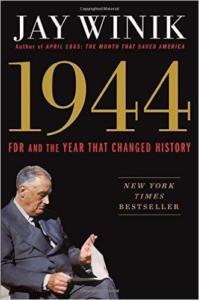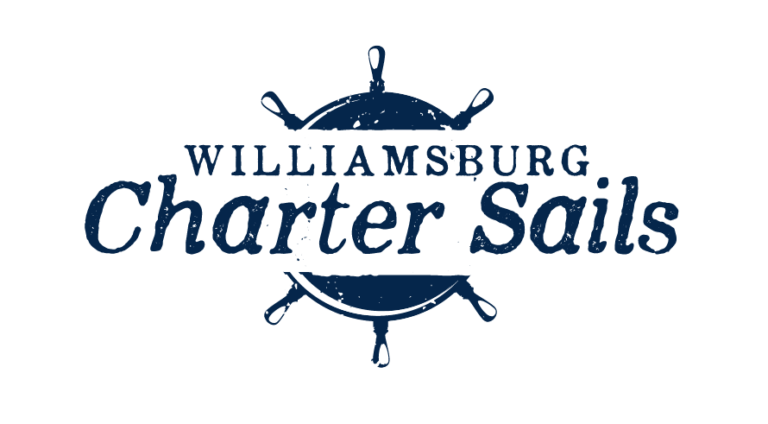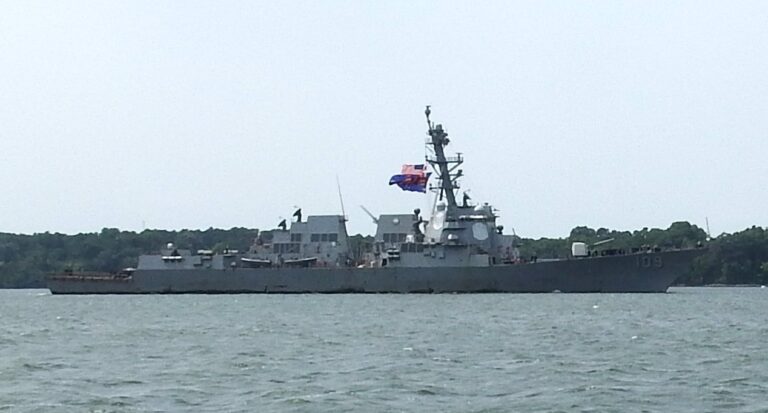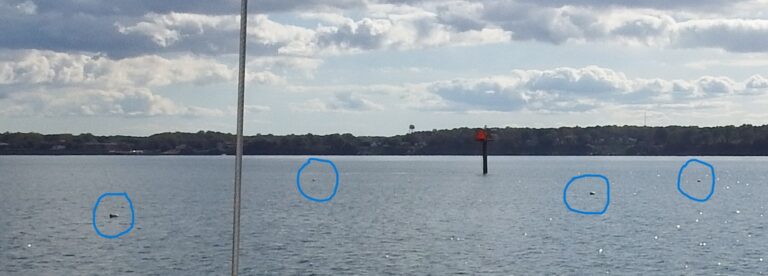Before Jack Kennedy made sailing glamorous, Franklin Delano Roosevelt enjoyed it as an elegant pastime.
His uncle John Roosevelt was a noted sailor who developed a large ice sailboat to run up and down the Hudson River from the family estate at Hyde Park. It was so fast that he could outrun trains along the Hudson. It’s on display today at Hyde Park (below).
Franklin took to boating as a boy while spending summers with his family at Campobello, off the coast of Maine. Jay Winik picks up the story in his book “1944” by describing how he “fell in love with the water and developed a lifelong passion for sailing. He had a twenty-one-foot boat there, New Moon, which his father gave him as a present. It was also there that Roosevelt began to fantasize about a naval career.” Years later he had a motorized sailing yacht called Half-Moon, where he courted his future wife Eleanor on a dinner cruise off New York City.
Winik threads his book with stories of how President Roosevelt was quite capable of thinking for himself without the advice of aides. “One of his greatest accomplishments, the Lend-Lease plan to keep Great Britain viable militarily after 1940, he devised on board a yacht while sailing the Caribbean. It was pure genius, a masterstroke.”
Churchill was forever grateful, but Lend-Lease also saved the Soviets. Winik writes that at the Tehran conference in 1943, Stalin made a toast to FDR that without Lend-Lease, “we would lose this war.”
The flight to Tehran was terrible and many men got sick. His sea legs saved the president. “An accomplished sailor, he also felt comfortable on the water, where he could master the pitch and swell of the waves. But flying was an entirely different matter…”
 “1944” is an entirely different matter as well. The book recounts the failure of the Allies, most notably the United States and the Roosevelt administration in particular, for failing to head off the extermination of the Jews in Europe by Nazi Germany. We knew as early as 1943 what the scope of the Holocaust was, and we could have saved millions during 1944 when the war swung in our favor. Winik recounts key figures in the State Department who stonewalled ambitious rescue plans. The standard response from the military was that America needed to focus on winning the war to save the Jews. But of course by then it was too late.
“1944” is an entirely different matter as well. The book recounts the failure of the Allies, most notably the United States and the Roosevelt administration in particular, for failing to head off the extermination of the Jews in Europe by Nazi Germany. We knew as early as 1943 what the scope of the Holocaust was, and we could have saved millions during 1944 when the war swung in our favor. Winik recounts key figures in the State Department who stonewalled ambitious rescue plans. The standard response from the military was that America needed to focus on winning the war to save the Jews. But of course by then it was too late.
Let’s go sail. The season opened in mid-March, for sailing on warm sunny days. To see the rates and reserve a date for a sailboat charter, click here. To check out reviews from sailors, click here. To become a crew member on a charter sail or to tell us your sailing story, click here.



